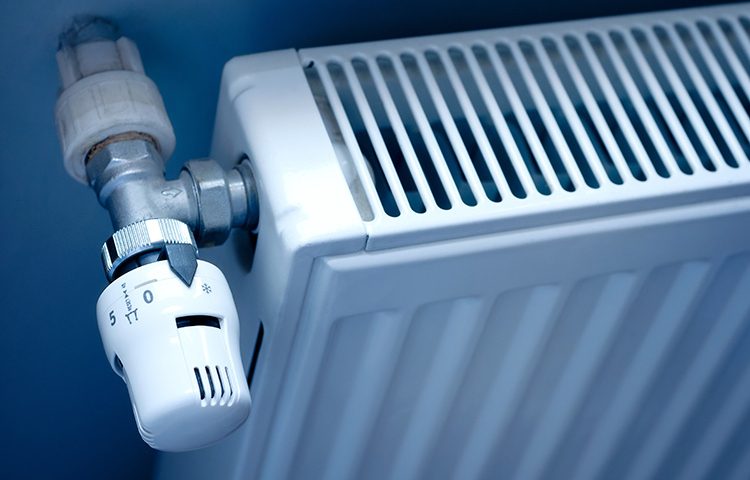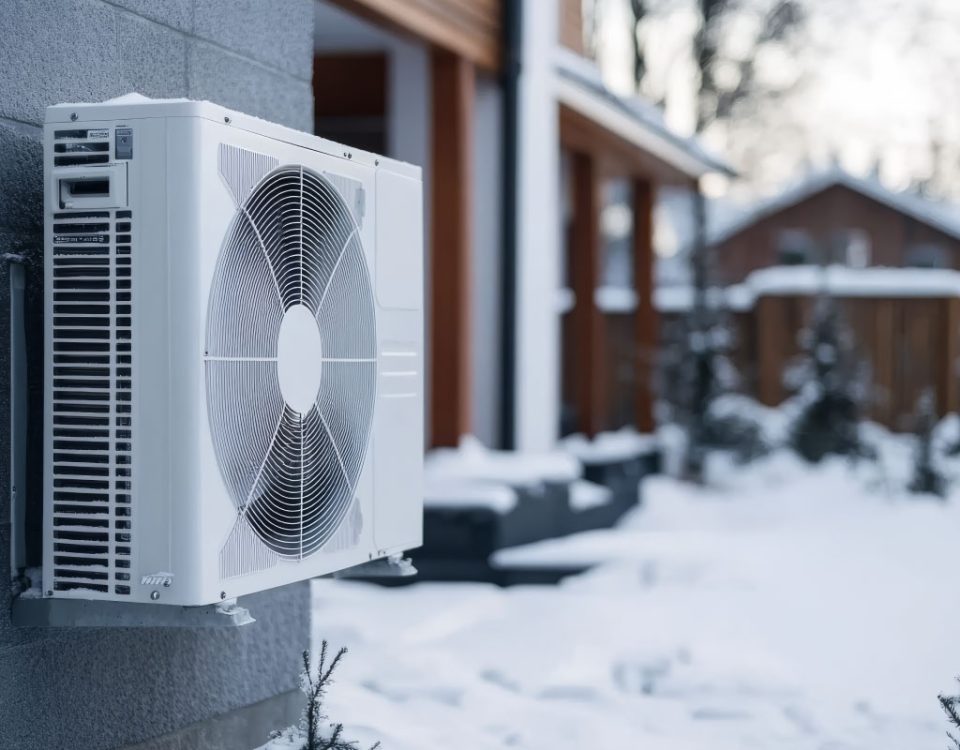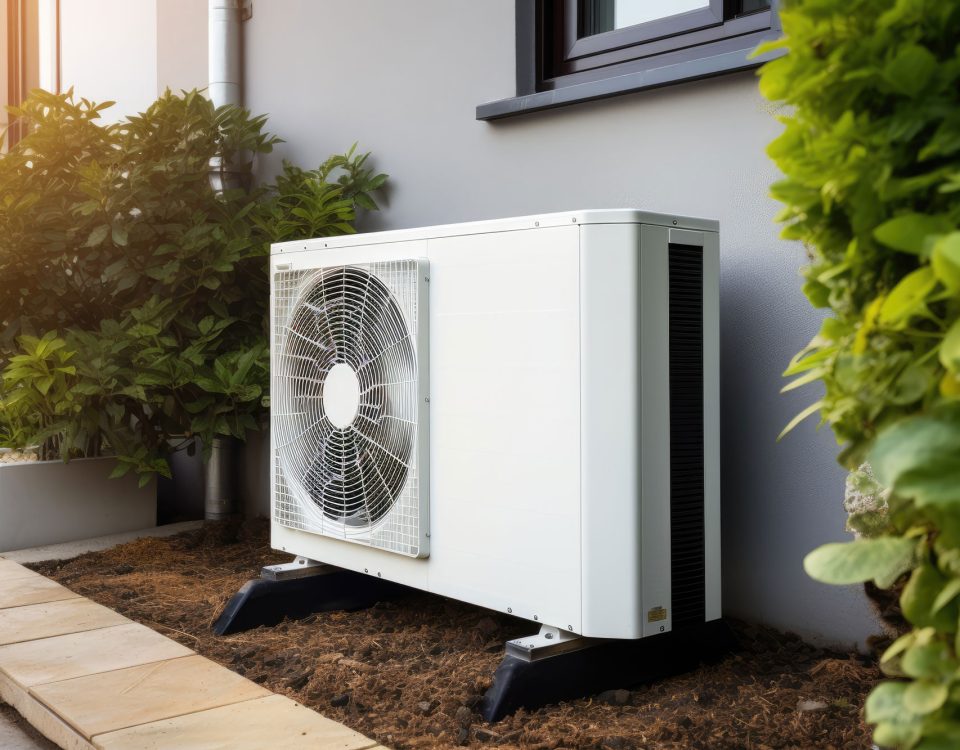What are the Differences Between a Furnace and a Boiler?
You know that a furnace and boiler are different types of home heating options. But do you actually know the differences between a furnace and a boiler? Do you know which one would be best for your home?
If you’re a bit lost while considering a new heating system for your home, don’t worry. We’re here on this cold Canadian winter day to give you all the hot info on the key differences between furnaces and boiler heating systems.
How They Heat
The main difference between a furnace and a boiler is what and how they heat. A furnace heats air, and then the warm air is moved to a duct system by a blower. As you’ve seen in many modern homes, the warm air is blown through vents in the floor or ceiling in order to heat the room.
A boiler, on the other hand, heats water or glycol which flows through a pipe network in the building. As the warm water moves through the pipes, it heats the surrounding area. The heat is distributed in rooms through radiators or in-floor heating loops.
Coles notes version: a furnace heats air, a boiler heats water/glycol.
Energy Sources
Furnaces run on electricity, natural gas, propane or oil, while boilers run on natural gas, oil, electricity or wood. The energy source available in your home may end up playing a key role in your decision to choose a boiler or furnace.
Furnace vs. Boiler Maintenance
The maintenance of a furnace is pretty simple, you just have to change the air filter. We recommend changing the air filter between every one to three months while in use. You want to make sure you keep up with filter changes to ensure dust and allergens aren’t blown around your home.
Need some help keeping your air filter clean? Sign up for Crystal’s Air Filter Subscription Service and have a new air filter delivered to your doorstep when it’s time to be changed!
Boilers require a whole other type of maintenance, however much less frequent than a home furnace. Boilers require a full air bleed, which basically means getting rid of all of the air bubbles that accumulate in the pipe network in your home.
Getting bubbles in your boiler system is very common, and we suggest doing it about once a year. You will know if you have to perform a bleed when the heating becomes inconsistent. Just think, those air bubbles aren’t bringing as much heat with them as the heated water, so it’s important to get rid of them to avoid those cold spots.
Another thing to consider is how you will keep your boiler/pipe network warm when the power goes out for a prolonged period of time. If it’s really cold out and your power is out for a long time, your pipes can freeze and potentially burst from the expanding ice. This could cause serious water damage to your home if not dealt with quickly. If you live in an area where power outages are common and you don’t have a generator, you should consider the impact this could have if you choose to heat your home with a boiler.
If you ever run into any issues with your furnace or boiler, we’re here to help with our 24-hour heating repair services.
What Space Do You Need to Heat?
One of the advantages of heating your home with a boiler is that you can target different zones or rooms of the house which can help reduce your utility bill.
Using a home furnace, on the other hand, means that you’re heating the whole house regardless of what rooms you are using. Despite this, furnaces are considered to be just as efficient as boilers these days.
Humidity
People who use boiler systems often comment about the increased humidity level in the house. This can easily be combatted with a dehumidifier, but is certainly a factor to be aware of.
Differences in Consistency
We all know that hot air rises, which means when your furnace is heating your house, the warmest air can be found upstairs, or in pockets around the house depending on where the vents are located.
Boilers, however, deliver much more consistent heat since the hot water is always moving through the pipes to the radiators.
On the other hand, boilers take longer to react to your thermostat than your furnace. When your house feels a bit chilly it’s going to take longer for you to feel the temperature rise in your house.
All That Noise, Noise, Noise!
When the furnace kicks on, you can tell because you can hear it every single time. To be honest, it can be a comforting sound that there is warm air to the rescue, however, the noise can be an annoyance to some people. You may want to consider the location of your furnace and whether the noise could be disruptive to any nearby bedrooms.
Boiler systems have virtually no noise when they turn on.
Age of the House or Building
Typically, newer houses have furnace systems whereas many older homes have boilers.
Normally when people are upgrading their heating units, they keep whatever system they have in place as a whole duct overhaul can be a big project. While this can be quite expensive, it’s certainly not impossible if you’re looking to switch from using a furnace to a boiler or vice versa.
Installation Cost
Furnaces and the installation of the unit are generally less expensive than boiler units. Talk to your Crystal Heating & Cooling representative to get an accurate quote on a new heating unit.
Decisions, Decisions
So now that you know the key differences between a furnace and a boiler, you’re probably wondering which one you should choose?
The reality is with the advent of modern technology, both are about as equally as effective as the other in terms of efficiency, and both have their pros and cons.
As we mentioned above, most people tend to stick to whatever system they already have when considering an upgrade of their furnace or boiler. As long as you select a unit that will properly heat the size of your house then you should stay toasty-warm all winter long.
—
Still have questions about which home heating solution is best for you? Contact Crystal Heating & Cooling for a representative who can help you select the best heating system for your home based on your needs.






